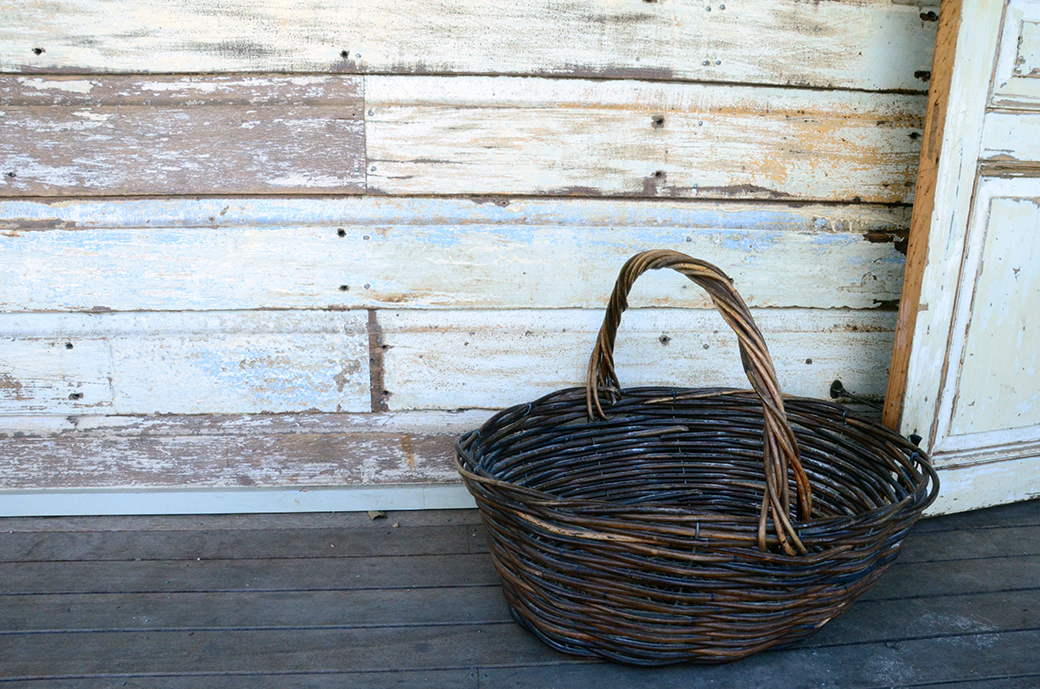
HARVEST | REAPING THE REWARDS
A collection of magazines and newspapers graces the weatherboard wall, thumbed casually by customers awaiting their take-out cappuccinos. A bustle of clientele and unobtrusive staff swirl in orchestrated efficiency like a choreographed flight of starlings. Natural light and the warmth of a morning sun cascade through open doorways into the interior from panoramic balconies. The restaurant is swathed in a delicate and subtle cacophony of flavours – rich Allpress coffee, freshly toasted bruschetta and olive oil mingling on the gentle early summer breeze.
For the breakfast diners filling almost every seat at Newrybar’s renowned and ever-popular Harvest Café, this is a slice of heaven with an exquisitely presented garnish of rural paradise. For the staff, this is business as usual – usual, that is, except for one small thing: a hat.

In the world of restaurateurs, having a hat isn’t about keeping the rain off or covering up a folically-challenged crown. A Hat, referring to the Australian Good Food & Travel Guide‘s Chef Hat Award, is the most prestigious accolade for any eatery, the be-all-and-end-all, the raison d’être, the defining acknowledgement in the food world. And Harvest has just been awarded its first.
Eight years ago, Tristan Grier took the reins of the small, rural eatery and, from the very outset, he had big plans.
“It started off as a little, country café,” he recalls. “It was not doing nights, the bakery was derelict, there was no deli, no growing and no real connection to local producers. Over the last seven and a half years we’ve been turning it up one day at a time.”

The Hat has been a driving force behind the business, the golden prize towards which Tristan and his team have been striving. There is a sense, as a customer of the rustic yet chic restaurant, that every member of the highly professional team takes the utmost pride in their work, that it is an absolute pleasure to serve you with utter confidence in the product. From a simple latte to a twelve-hour braised shoulder of lamb, every item served is of the finest quality borne of an accumulative and mutual passion.
“We’ve always looked at those places who have achieved a Hat with esteem,” Tristan expresses. “We always wondered how we could get there and it’s been a long road. Now that we have achieved it, it’s all about maintaining it – and now the hard work begins!”
Australian society is renowned for its liberal smiting of tall poppies and, now that Harvest has this elevated distinction, it has laid itself on the chopping board.

“Before the Hat, we could under-promise and over-deliver,” says Tristan. “We could exceed expectations all the time. But now people arrive with these massive expectations.”
Not that fulfilling these preconceptions should prove the slightest issue to the highly proficient team. Tristan is quick to state that there is no boss, that no one, from the head chef to the lowly dishy, works for anyone else – they each work together toward the same goal: the impeccable service of an exceptional product.
Harvest‘s recent success and source of pride is twofold. Whilst the Hat proffers national renown in the culinary kingdom, the café has also been presented an honour of a more personal acclaim and one more aligned to a café born and raised in the Byron Shire: The Good Food Guide State Top 10 for sustainability.

Tristan and his team have gone to what might appear to be excessive lengths in an industry that is not often recognised for its sustainability. Each of the three Harvest buildings – the restaurant, the deli next door and the century old reclaimed bakery – are adorned with a gleaming blanket of solar panels, all grey water is treated onsite, green waste is composted for the profusion of raised vegetable beds scattered across the property and every effort is made to reduce the amount of plastic received from suppliers.
“The sustainable angle has been a massive push for Harvest from day one,” Tristan reminisces. “The national recognition we have recently received has proven to us that we are doing the right thing and we’ll keep trying to get better every day. It has also allowed us to grow organically – if you’ll pardon the pun – to grow sustainably. We’re in the country, it’s called Harvest, we’re in Byron Bay – everything about this site says that, ultimately, it should be one of Australia’s most sustainable restaurants.”

The end goal for Harvest would be to become a one hundred percent no-waste restaurant. While this takes a vast amount of time, effort and finance to establish such practices, Tristan and his team have already come a great distance to fulfilling this challenge and are continually finding new ways to trim down their carbon and waste footprints.
The Deli, for example, offers numerous cuts of beef. To maintain stock, many delis would order a range of products, each individually wrapped in plastic, comprising several deliveries over a fortnight or month. Tristan’s solution: to order a whole cow. This not only means that just one delivery is needed and the amount of packaging is significantly reduced, but also that they then can create their own unique, high quality range of smoked, cured, dried or sliced meats. And this is just one win-win scenario created by a more sustainable practice.

Working closely with Bangalow Organics just a short distance from the restaurant, Tristan and his chefs receive produce in reusable crates, can visit the farm and hand-pick vegetables and can even coordinate a planting calendar with the farmers to ensure fresh, local produce is always available for upcoming menus.
Harvest is now in the fortunate position to be able to make requests of their suppliers, influencing them positively to make better ecological decisions.
“These days, we are doing big enough numbers to make requests of out suppliers,” Tristan states. “The fishmongers, both in Byron and Ballina, have been really good. We won’t accept Styrofoam anymore, so we’ll either return it immediately or stack it and return it in bulk. The farmers are great – everything either arrives in cardboard, which we then recycle, or in plastic tubs, which we wash and return. Ultimately, it’s not that hard, it’s just slightly changing their practices and making a small investment in the reusable tubs.”

While Tristan is quick to admit that the business still has a way to go, he is continually scrutinising every aspect in the pursuit of sustainability. Plastic drinking straws were given the heave-ho in favour of paper, the always de rigueur San Pellegrino – a staple restaurant favourite – was replaced by local Mount Warning spring water when Tristan made the realisation that it takes 100 mililitres of oil through food-miles to deliver a single, one litre bottle. All waste is fastidiously separated and recycled, individual bins for green waste, glass and paper taking their efforts well above and beyond council requirements. Along with the plethora of other efforts he is voluntarily undertaking, Tristan is also currently looking for a supplier to provide milk in bulk, fifty-litre bladders, rather than the environmental disaster that is the conventional two-litre bottle.
Like every aspect of Harvest, the entire staff goes the extra mile to keep things green and finally, Tristan is beginning to see some sense of fruition in his creation.

“The vision from the start has been what you see here now; it is the café, the one hundred and three year old bakery, the gardens, the deli and so on. Harvest is a destination restaurant, so we need to have a whole product.”
Harvest is a place of no compromise. The food must be impeccable, the service exceptional, the produce must be fresh and organic, the experience faultless and this must all be achieved environmentally, ethically and sustainably.
For the average patron, the delectable dishes, warm and attentive staff and the ambiance are more than worthy of a tip of the Hat, but for Tristan this is just the beginning.
“Ultimately, we want this place to be around for forty or fifty years – we are just the custodians. With close to a hundred and fifteen years of history, this isn’t ‘our’ place as such. So if we can make sure that this organism of a living, breathing business is healthy, then that is financial success to us – if the staff are paid, the producers are paid, we’re doing something good for the world and our local economy and the place is breaking even, that is success, far beyond growth and profit.

“As Australians, we are starting to work out what our food culture is. Harvest isn’t a trendy restaurant, but it is on trend, because it is old world and old world never falls apart. As Byron Bay ebbs and flows around us, we’ll always just stay true to who we are.”
Harvest is open seven days a week from 8:00am for breakfast and lunch, serving dinner on Thursday, Friday and Saturday evenings.
Visit www.harvestcafe.com.au for more information and join them on Facebook: @harvest-café and instagram, @harvestnewrybar.
– This article first appeared on Common Ground Australia on Oct 12, 2014
All Photos: ©SubCutanea
You May Also Like

iBARK | FROM A DiFFERENT PERSPECTiVE
May 31, 2015
WOODFORD | THAT OTHER FESTIVAL
May 31, 2015

